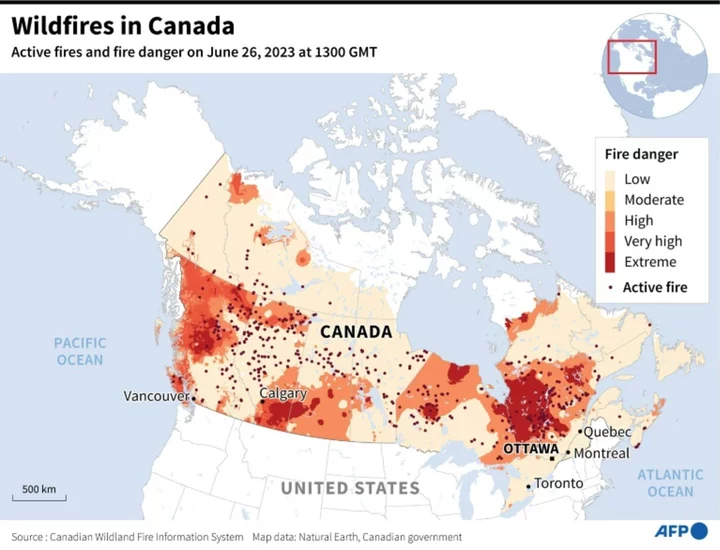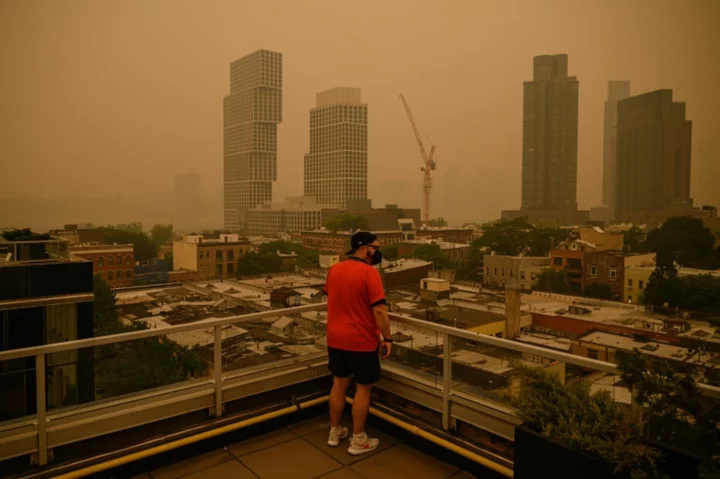Wildfires raging across Canada, made more intense by global warming, have released more planet-warming carbon dioxide in the first six months of 2023 than in any full year on record, EU scientists said Tuesday.
Hundreds of forest fires since early May have generated nearly 600 million tonnes of CO2, equivalent to 88 percent of the country's total greenhouse gas emissions from all sources in 2021, the Copernicus Atmosphere Monitoring Service (CAMS) reported.
More than half of that carbon pollution went up in smoke in June alone.
"The emissions from these wildfires are now the largest annual emissions for Canada in the 21 years of our dataset," CAMS said in a statement.
The previous record for CO2 cast off by wild fires was just over 500 million tonnes, in 2014.
As of Tuesday, firefighters were battling 494 blazes throughout the country, more than half of them classified as out-of-control, according to the Canadian Interagency Forest Fire Centre.
Fuelled by unusually dry conditions and high temperatures, fires erupted in large numbers starting in early May in the western part of Canada, expanding over the last 50 days eastward to Ontario, Nova Scotia and Quebec.
Globally, forests play a crucial role in curbing global warming by absorbing and stocking excess CO2 -- emitted mainly from burning fossil fuels -- that is overheating the planet.
Vegetation and soil have consistently soaked up about 30 percent of CO2 pollution since 1960, even as those emissions increased by half.
When forests burn, however, all that stored carbon is released into the air.
Fires in eastern Canada have sent huge plumes of particle-filled smoke across the Atlantic Ocean at high altitude, reaching the British Isles and Europe this week.
The long-range transport of smoke by prevailing winds "is not unusual, and not expected to have any significant impact on surface air quality in Europe," said CAMS senior scientist Mark Parrington.
"But it is a clear reflection of the intensity of the fires."
Earlier in June, eye-watering smoke and throat-scratching particle pollution from Canada's fires descended over the US eastern seaboard, including New York City and Philadelphia.
More than 75 million people were under air quality alerts.
Air quality in Montreal was ranked among the worst in the world over the last weekend, according to IQAir.
Worldwide, wildfires in 2021 released about 1.8 billion tonnes of CO2 into the atmosphere, compared to about 38 billion from fossil fuels and industry.
mh/js









